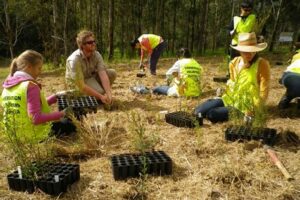Table of Contents
Discover exciting volunteer programs for high school students that offer valuable opportunities to make a difference in your community and gain valuable skills. Engage in meaningful projects, connect with like-minded individuals, and build a strong foundation for your future career. Explore various causes such as environmental conservation, education, healthcare, and more. Join now and become part of a rewarding volunteer experience that will leave a lasting impact on both yourself and the world around you.
Volunteer programs for high school students offer a unique opportunity for young individuals to make a difference in their communities while gaining valuable skills and experiences. These programs not only provide a chance to give back but also serve as a stepping stone towards personal growth and development. With a wide variety of options available, students can choose from local initiatives that focus on environmental conservation, animal welfare, or assisting the elderly, to international projects that involve building schools in underprivileged areas or providing medical aid in developing countries. By participating in these volunteer programs, high school students can cultivate empathy, leadership skills, and a sense of social responsibility that will undoubtedly shape their future endeavors.
Introduction
Volunteering is a wonderful way for high school students to make a positive impact on their communities, learn new skills, and gain valuable experience. Engaging in volunteer programs not only helps students develop a sense of responsibility and empathy but also provides them with opportunities to explore different career paths and build a strong college application. In this article, we will discuss the various volunteer programs available for high school students and how they can benefit from participating in them.
The Importance of Volunteer Programs
Volunteer programs offer numerous benefits for high school students. They provide an avenue for students to give back to their communities, fostering a sense of civic engagement and instilling values of compassion and social responsibility. Additionally, these programs offer students the chance to develop essential life skills such as teamwork, communication, and problem-solving. By volunteering, students also gain exposure to diverse experiences and cultures, broadening their perspectives and enhancing their understanding of societal issues.
Types of Volunteer Programs
There are several types of volunteer programs available for high school students. Some programs focus on environmental conservation, where students can participate in activities like cleaning up beaches or planting trees. Others revolve around providing assistance to vulnerable populations, such as volunteering at homeless shelters or working with elderly citizens. Additionally, there are opportunities to volunteer in educational settings, helping younger children with their studies or mentoring them in extracurricular activities.
Local Community Programs
A great starting point for high school students interested in volunteering is to get involved in local community programs. These programs often collaborate with schools and community organizations to provide a range of volunteer opportunities. Students can engage in activities like organizing food drives, participating in community clean-up events, or assisting at local animal shelters. Such programs allow students to make a direct impact in their own neighborhoods.
International Volunteer Programs
For those seeking more immersive experiences, international volunteer programs offer the chance to make a difference in communities around the world. These programs often involve travel and cultural exchange, providing students with a unique opportunity to learn about different cultures while making a positive impact. Participating in an international volunteer program can be a transformative experience that broadens students’ global perspective and helps them develop a greater appreciation for diversity.
Non-Profit Organizations
Non-profit organizations are another excellent resource for high school students looking to engage in volunteer work. Many non-profits have specific youth volunteer programs or initiatives tailored to teenagers. Organizations focused on causes such as education, healthcare, or environmental conservation often offer opportunities for high school students to contribute their time and skills. Volunteering with a non-profit organization allows students to support a cause they are passionate about and gain valuable experience in their area of interest.
Benefits for College Applications
Participating in volunteer programs during high school can significantly enhance a student’s college application. Colleges and universities value applicants who demonstrate a commitment to community service, as it showcases characteristics such as leadership, empathy, and a desire to make a positive impact. Furthermore, volunteering can provide students with unique stories and experiences to share in their college essays and interviews, setting them apart from other applicants.
Skills Development
Volunteer programs provide an excellent platform for high school students to develop essential skills that will benefit them in various aspects of life. Through volunteering, students can enhance their communication skills by interacting with diverse groups of people. They can also improve their organizational skills by planning and executing events or projects. Additionally, volunteering fosters teamwork, adaptability, and problem-solving abilities, all of which are highly valued in academic and professional settings.
Long-Term Commitment
While short-term volunteer programs are beneficial, high school students may also consider making a long-term commitment to a specific organization or cause. Long-term volunteering not only allows for deeper engagement and impact but also enables students to develop more meaningful relationships with the community they serve. By committing to a cause over an extended period, students can witness the tangible results of their efforts and gain a greater sense of fulfillment and personal growth.
Conclusion
Volunteer programs provide high school students with unique opportunities to make a positive impact on their communities while gaining valuable experience and life skills. Whether engaging in local community programs, international initiatives, or working with non-profit organizations, students can develop a sense of responsibility, empathy, and global awareness. Participating in volunteer programs also enhances college applications and equips students with essential skills for their future endeavors. By dedicating their time and efforts to helping others, high school students can contribute to building a better and more compassionate world.
Benefits of Volunteering for High School Students
Volunteering provides high school students with numerous benefits, allowing them to develop valuable skills such as teamwork, leadership, and communication. By engaging in volunteer programs, students gain practical experience outside of the classroom, which enhances their college and job applications. Additionally, volunteering fosters a sense of empathy and civic responsibility while promoting personal growth and self-confidence.
Types of Volunteer Programs Available for High School Students
Various volunteer programs cater specifically to high school students, offering diverse opportunities to match their interests and passions. Some popular options include environmental conservation, animal shelters, community outreach, tutoring and mentoring programs, and healthcare initiatives. These programs allow students to explore different fields, encourage their personal growth, and make a positive impact on their communities.
How to Find Volunteer Programs for High School Students
Locating volunteer programs for high school students is easier than ever, thanks to online platforms and community organizations. Students can visit websites that specialize in listing volunteer opportunities or reach out to local nonprofits, schools, or religious institutions for recommendations. High school guidance counselors and teachers are also excellent resources for finding suitable volunteer programs that align with students’ interests and schedules.
Tips for Balancing Volunteer Work and School
While engaging in volunteer programs is commendable, high school students must also find a balance between their volunteer commitments and academic responsibilities. To manage their time effectively, students can create a schedule, prioritize tasks, and communicate with their teachers and mentors. It is crucial for students to maintain a healthy balance to ensure that they can fully commit to both their volunteer work and school commitments.
How to Make the Most of Volunteer Programs
To maximize their experience in volunteer programs, high school students should approach each opportunity with enthusiasm and dedication. They can actively participate in project planning and decision-making, seek mentorship from experienced volunteers, and take advantage of any training or learning opportunities provided by the organization. By fully immersing themselves in the program, students can develop valuable skills and create meaningful connections.
The Impact of Volunteer Programs on College Applications
Participating in volunteer programs can greatly enhance a high school student’s college application. Admissions officers appreciate applicants who show a commitment to community service, as it demonstrates their willingness to make a positive impact beyond their academic pursuits. By highlighting their volunteer experiences in their applications and essays, students can stand out to college admissions officers and effectively showcase their dedication to community engagement.
Long-Term Benefits of Volunteering for High School Students
Apart from the immediate advantages, the long-term benefits of volunteering for high school students are substantial. Engaging in volunteer work can shape students into well-rounded individuals, instilling in them a sense of compassion, empathy, and a lifelong passion for helping others. Additionally, the skills and experiences gained through volunteering can have a lasting impact on their personal and professional lives, opening doors to future career opportunities and fostering a sense of fulfillment.
How to Get Started with Volunteer Programs for High School Students
Getting started with volunteer programs for high school students is as simple as researching local organizations, reaching out to volunteer coordinators, and attending information sessions or orientations. Students should consider their interests, skills, and desired impact when selecting a program and align themselves with causes they are passionate about. By taking the first step and embarking on their volunteer journey, high school students can make a positive impact on their communities and their own personal growth.
Volunteer programs for high school students offer a multitude of benefits and opportunities for personal growth, skill development, and community engagement. These programs not only provide a platform for young individuals to make a positive impact on society but also foster their overall development and shape their future perspectives. Here are some key points elaborating on the significance of volunteer programs for high school students:
- Experiential Learning: Volunteer programs enable high school students to actively engage in real-life experiences, allowing them to learn and grow beyond the confines of a traditional classroom setting. Through hands-on involvement, students can gain practical knowledge, develop problem-solving skills, and understand the complexities of the world around them.
- Community Engagement: Volunteering provides an invaluable opportunity for high school students to connect with and contribute to their local communities. By working alongside community members, students develop a sense of responsibility and empathy towards others, fostering a deeper understanding of societal issues and promoting social cohesion.
- Leadership and Teamwork: Engaging in volunteer programs allows high school students to develop leadership skills and cultivate teamwork abilities. Within these programs, students often take on responsibilities such as organizing events, coordinating activities, and collaborating with peers and mentors, enhancing their ability to lead and work effectively in a team environment.
- Personal Growth: Volunteer programs provide a platform for high school students to explore their passions, interests, and talents. By volunteering in areas they are passionate about, students can discover new skills, build self-confidence, and develop a sense of purpose, all of which contribute to their personal growth and self-discovery.
- College and Career Advancement: Participation in volunteer programs demonstrates a student’s commitment, dedication, and willingness to make a positive impact. Colleges and universities often value community service experiences when considering applications, as it showcases an individual’s character and potential. Furthermore, volunteer work allows high school students to explore career paths, gain relevant experience, and build valuable networks within their areas of interest.
Overall, volunteer programs for high school students play a crucial role in shaping young individuals into responsible and socially conscious members of society. By offering experiential learning opportunities, fostering community engagement, promoting leadership and teamwork, facilitating personal growth, and aiding in college and career advancement, these programs empower students to become active contributors to their communities and inspire positive change in the world.
Thank you for visiting our blog today and taking the time to learn about volunteer programs for high school students. We hope that the information we have provided has been helpful in giving you a better understanding of the benefits and opportunities available through these programs.
Volunteering is not only a great way to give back to your community, but it also offers numerous personal and professional advantages. By participating in a volunteer program during your high school years, you can develop important skills, gain valuable experience, and make a positive impact on the lives of others. Whether you’re passionate about helping the environment, working with children, or supporting charitable causes, there is a volunteer program out there that can align with your interests and goals.
One of the key benefits of volunteering as a high school student is the opportunity to develop essential life skills. Through these programs, you can enhance your communication skills, problem-solving abilities, and teamwork capabilities. Additionally, you can gain valuable hands-on experience in areas such as event planning, fundraising, and project management. These skills and experiences can greatly contribute to your personal growth and future success, whether you choose to pursue higher education, enter the workforce, or start your own business.
In addition to personal development, volunteering during high school can also help you stand out in college and job applications. Admissions officers and employers often value candidates who demonstrate a commitment to community service and a willingness to go above and beyond their academic responsibilities. By participating in volunteer programs, you can showcase your dedication, leadership potential, and ability to make a difference. Furthermore, these experiences can provide you with unique stories and examples to share during interviews, making you a more memorable and compelling candidate.
In conclusion, volunteer programs for high school students offer a wealth of opportunities for personal growth, skill development, and making a positive impact. We encourage you to explore the various programs available in your area or even consider international volunteer opportunities. By dedicating your time and energy to helping others, you can not only benefit yourself but also contribute to creating a better world. Thank you again for visiting our blog, and we hope that you feel inspired to embark on your own volunteering journey!
.
People also ask about Volunteer Programs for High School Students:
What are the benefits of participating in volunteer programs for high school students?
Engaging in volunteer programs as a high school student offers numerous benefits, including:
- Developing empathy and compassion towards others
- Gaining valuable life skills such as teamwork, leadership, and communication
- Enhancing college and job applications by showcasing community involvement
- Exploring potential career paths and interests
- Building a network of like-minded individuals and mentors
What types of volunteer programs are available for high school students?
There are various volunteer programs tailored specifically for high school students, such as:
- Environmental conservation projects
- Animal shelters and wildlife rescue organizations
- Tutoring and mentoring programs
- Healthcare initiatives
- Homeless shelters and food banks
- International volunteer opportunities
How can high school students find volunteer programs?
High school students can find volunteer programs through:
- Contacting local nonprofit organizations or community centers
- Researching online platforms that connect volunteers with opportunities
- Checking with their school’s guidance counselor or service clubs
- Attending volunteer fairs and community events
- Reaching out to friends, family, and teachers for recommendations
What is the time commitment typically required for volunteer programs for high school students?
The time commitment for volunteer programs can vary depending on the organization and project. It can range from a few hours per week to several weeks during summer or school breaks. It is important for high school students to consider their academic workload and extracurricular activities when choosing a volunteer program that suits their schedule.
Do volunteer programs for high school students provide any training or orientation?
Yes, many volunteer programs offer training and orientation sessions to ensure that high school students understand the tasks and responsibilities involved. These sessions may cover topics such as safety guidelines, cultural sensitivity, and specific skills required for the program. Volunteers are typically guided and supervised by experienced staff or mentors throughout their participation.






